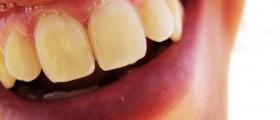
Burping/belching
To burp means to expel gas from the bowels through the mouth. This is usually quite normal and is not considered serious, except in the cases of continuous excessive belching, which can cause embarrassment or indicate some digestive disorders.
Causes
There are several causes of excessive burping. Some are associated with the person’s diet, while others stem from various underlyingconditions. In some cases, belching is provoked by an allergic reaction to the certain type of food. Excessive burping occurs after consuming the troublesome food, as it is the case with lactose-intolerant people, who end up passing gas or belching after taking milk or dairy products. Wrong eating habits can also lead to excessive burping and stomachache. This is typical of people who tend to overeat or eat at inappropriate time, or those consuming overly spicy or oily food.
Burping is also very common in people suffering from gastroesophageal reflux disease (GERD), also known as acid reflux, which causes the gastric acid to be pushed back up toward the esophagus. People with GERD may also have chest pain, heartburn, nausea, may have trouble eating and breathing and can experience acid taste in the mouth. Another cause of excessive burping is an intestinal disorder known as irritable bowel syndrome, resulting from the inability of large intestines to function normally. This condition is accompanied by bloating, gastric pains, gas, nausea, diarrhea or constipation. Burping can also result from gallbladder disease. Gallbladder is the organ which stores bile, the product of liver, which helps the body to digest fats. If there is a problem with the gallbladder, a person may bloat, vomit, feel nauseas, feverish, experience heartburn, chest pain and excessive belching.
Due to physiological and hormonal changes in pregnancy, excessive burping often occurs in expectant women. With advancing pregnancy, the uterus gets larger and occupies the abdominal cavity. As a result, digestion becomes slower hence the belching. Another reason for excessive burping during pregnancy is the increase of progesterone levels. This hormone causes the muscular bodily tissue to relax, including the muscles of the gastrointestinal tract. This slows down digestion and can make the woman feel bloated, nauseous, and cause her to burp.
Treatment
The only way to treat burping is to address the underlying causes. Burping which is brought on by digestive disorders requires the treatment of these conditions. Antacids are usually prescribed to relieve the symptoms of acid reflux. Alternatively, a person may take probiotic medication, or resort to natural remedies such as the licorice herb, aloe vera juice, and alkaline foods like celery, asparagus, leeks and cucumbers. A diet rich in fiber, peppermint oil or evening primrose oil reduce the pain and cramps accompanying the irritable bowel syndrome. If burping is caused by gallbladder disease, the treatment may even include surgery. It is advisable to reduce the intake of foods like wheat, milk, peanuts, chocolate, eggs and colas as they can give gas. Fruit juice and higher consumption of fluids, excluding soft drinks, helps fight belching. Another advice is proper chewing of food, which promotes digestion and decreases burping.

















Your thoughts on this
Loading...